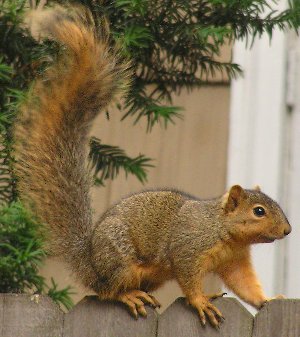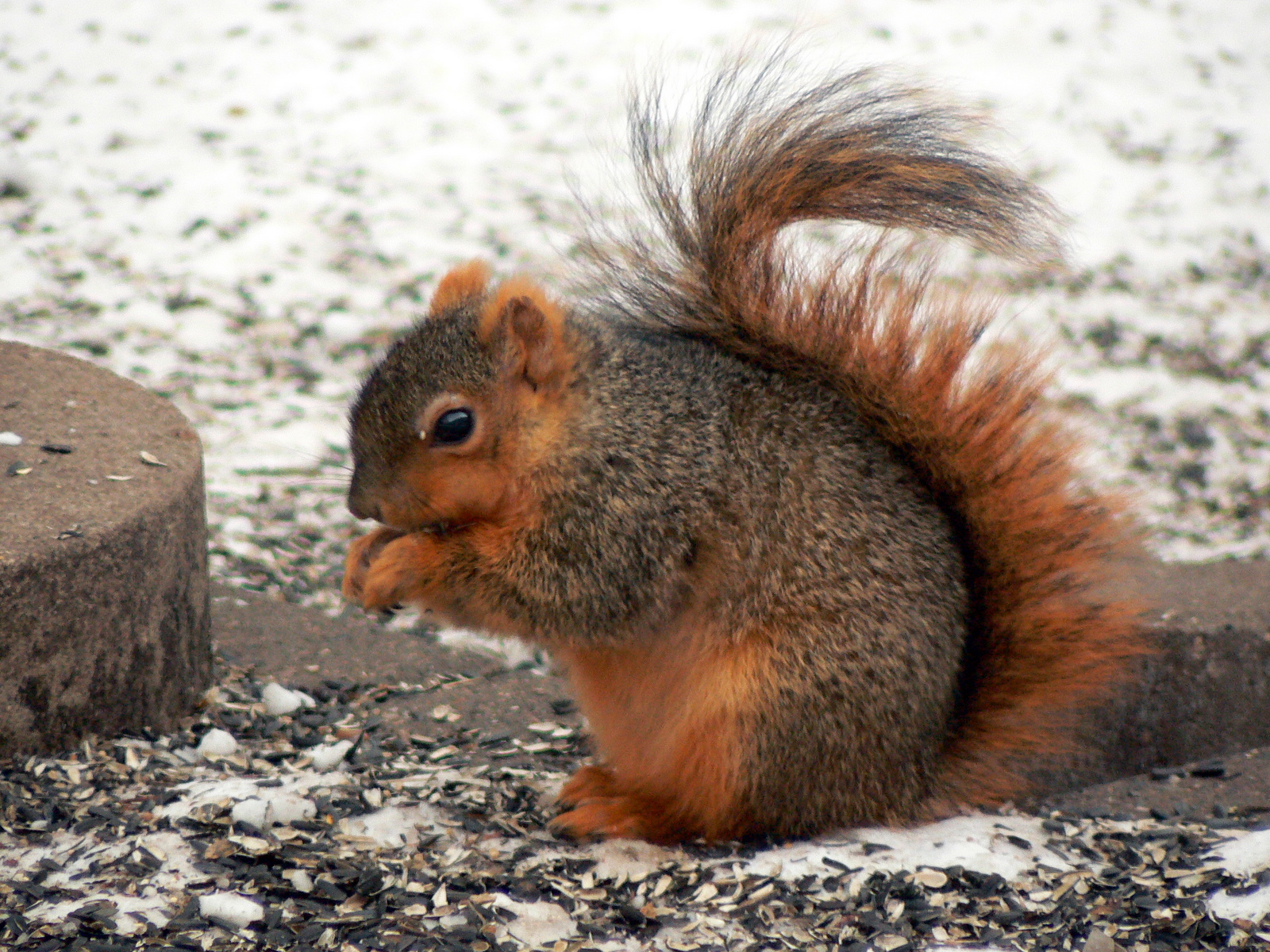
An eastern fox squirrel (Sciurus niger). Image by Markus Krötzsch (CC BY-SA 3.0).
I observed the eastern fox squirrel, Sciurus niger, at various locations on the northern end of Rice University campus on February 3, 2014 in the early afternoon starting at 2:20 pm. On this day the skies were grey but not cloudy and the temperature was 46 degrees Fahrenheit. The wind was not that strong, but still very few squirrels were out. The squirrel habitats I observed were the woody and grassy areas of campus in front of the Lovett Hall building along Main Street. I observed squirrels in areas near human traffic such as university bus stops and in areas more isolated from human contact. During observation, I was initially at least 10 feet away from the squirrel subject at all times. However, there were instances when the squirrels traveled towards me in my direction.
I was most intrigued by a pair of squirrels in a grassy area by the bus stop that were both initially digging into the dirt and grass. The two squirrels were in their separate patches about eight feet apart and they were using their forepaws to remove the dirt from the ground. The digging action was very rapid and vigorous, as I could hear them scraping the grass and dirt away. Sometimes, the squirrels would stop digging and move a few inches and dig another hole. At other times, the squirrels would stop and put something into their mouths and start chewing. I assumed these objects to be cached food; however, I could not determine what type of food it was from the distance I was standing. The reason I believe the objects to be cached food is because the squirrels were digging in the grass for it, where no other types of plants besides the grass were growing. If the squirrels were eating grass roots, then I believe they would not have had to dig several holes in their respective grassy patches to search for the roots. Therefore, I believe they were foraging on previously stored foods. I saw this same digging/searching and eating behavior in two more squirrels that I observed that day.
What would cause the squirrel to store food? (more…)




